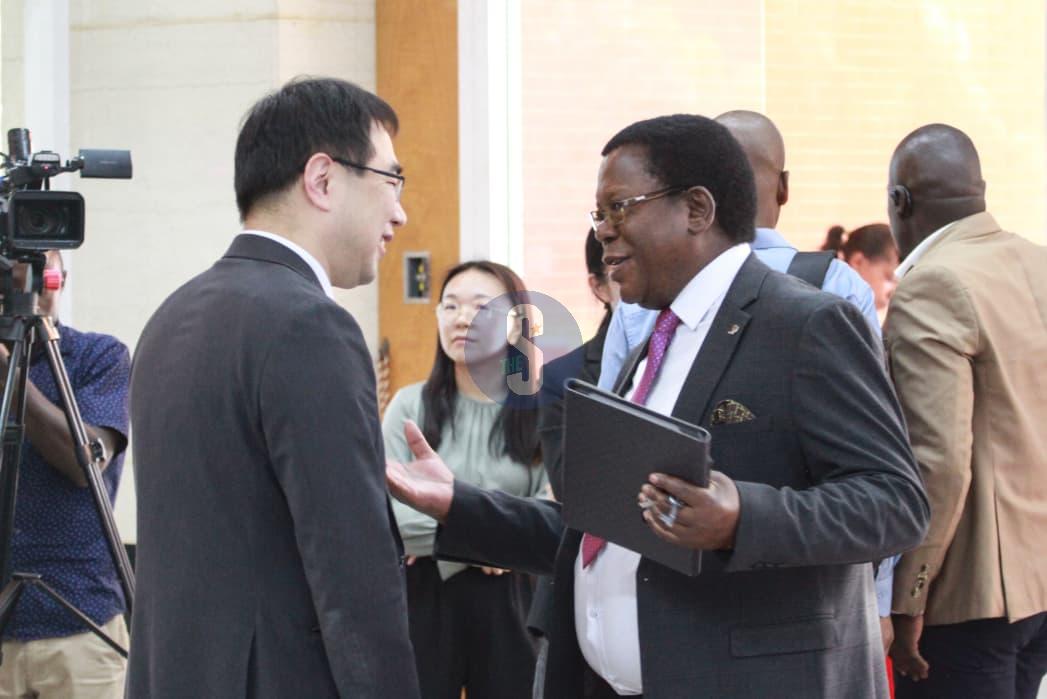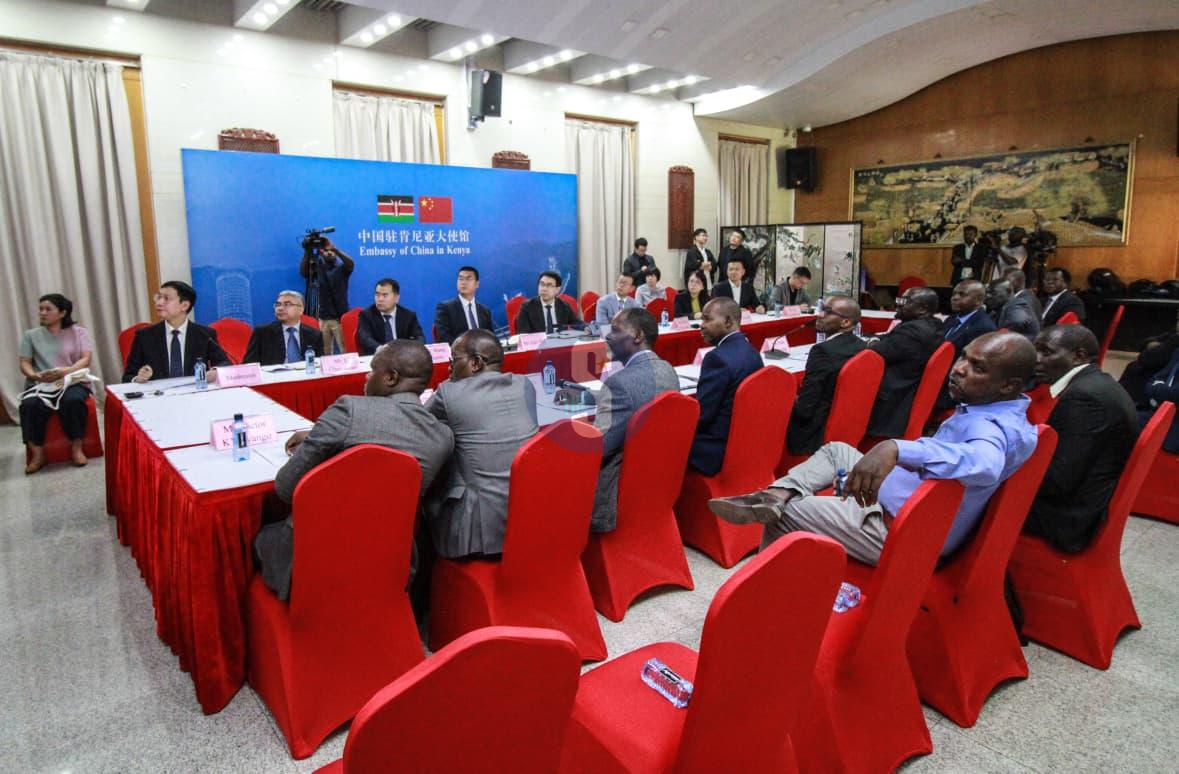

A group of diplomacy experts have condemned what they termed
as an attempt to distort the world’s history and erase China’s contributions to
world peace following its victory against Japan.
While backing President Xi Jinping’s Global Governance
Initiative, the experts from Kenya and China dismissed critics of China’s
recent grand parade to commemorate 80 years since its victory.
They made the sentiments during a significant symposium
hosted by the Chinese Embassy in Kenya on Monday.
The meeting focused on the Global Governance Initiative and
commemorating the 80th anniversary of the victory in the Chinese People's War
of Resistance against Japanese Aggression and the World Anti-Fascist War.
The event brought together diplomats, scholars, and
community leaders to reflect on historical lessons and advocate for a more
inclusive international order.-
The symposium, held in Nairobi on September 8, 2025, served
as both a commemorative event and a policy dialogue.
Zhang Zhizhong, China's Charge d'Affaires in Kenya, presided
over the proceedings by emphasising the significance of remembering historical
sacrifices while working toward future peace and cooperation.
He noted that China had recently marked the anniversary with
a grand rally and military parade in Beijing attended by hundreds of thousands
of citizens, more than 60 foreign leaders, and numerous international guests.
Zhang highlighted that the resistance against Japanese
aggression began earlier and lasted longer than any other allied nation's
involvement in WWII, with China suffering approximately 35 million casualties
during the conflict.
"Remembering history is not about fostering hatred, but
about preventing the tragic recurrence of history. Holding a military parade is
not about showing off military power, but about demonstrating the will and
strength for peace,” Zhang stated.
He added that safeguarding the outcomes of WWII and the
post-war international order requires defending multilateralism while opposing
unilateralism and bullying practices.
The Charge d'Affaires elaborated on China's Global
Governance Initiative, describing it as a comprehensive framework reflecting
China's commitment to sovereign equality, international law, and multilateral
cooperation.
“China’s proposal of the GGI does not mean to overturn the
existing international order or to create another framework outside the current
international system,” he said.
“Rather, the consideration behind is to respond to changes
in the international landscape by calling for the rectification of unjust and
improper arrangements in the current global governance system,” Zhang said,
adding that the appeal aligns with the fundamental interests of Global South
countries, including Kenya.
“China is ready to work with Kenya as well as other Global
South countries to carry out exemplary cooperation on promoting the GGI,” he
emphasized.
He presented the initiative as a roadmap for reforming
global governance structures to make them more representative and responsive to
contemporary challenges.
Professor Peter Kagwanja, President and Chief Executive of
the Africa Policy Institute, provided context for how China's victory in WWII
ended over a century of foreign occupation and humiliation, restoring its
status as a major power while inspiring colonized peoples across Africa and
beyond to fight for independence.
He emphasised that Chinese resistance tied down significant
Japanese forces, buying critical time for the Allies and demonstrating the
decisive role of the Global South in the common victory against fascism.
Kagwanja further argued that China's recent commemorations,
including the military parade, serve as a reminder that the Global South was
central to the struggle against fascism and must now be central in shaping a
more just and equitable international order.
He described the Global Governance Initiative as part of
China's broader efforts to inject fairness and inclusivity into the global
system, alongside other initiatives including the Global Development
Initiative, Global Security Initiative, and Global Civilization Initiative.
The symposium provided a platform for African scholars to
emphasise the frequently overlooked contributions of the Global South to allied
victory in WWII.
Professor Patrick Maluki, Chair of the Department of
Diplomacy and International Studies at the University of Nairobi, noted that
while Western contributions are often highlighted in historical accounts, the
role of China and the Global South in defeating fascism should not be
forgotten.
Prof Maluki, an experienced researcher in diplomacy and
international conflict management, stressed that the symposium reminded the
world that past sacrifices provide lessons for shared responsibility today.
He joined other scholars in advocating for greater
representation of Global South voices in contemporary global governance reform
efforts.
Dennis Munene, Director of Research and Executive Director
of the China-Africa Centre at the Africa Policy Institute, called out attempts
to peddle other narratives while whitewashing China’s role.
“China’s role in the World Anti-Fascist War has often been
marginalized in Western-centric narratives, leading to distortions of
historical memory,” he said.

Gao Wei, President of the Kenya Overseas Chinese Association
and the China Council for the Promotion of Peaceful National Reunification in
Kenya, reflected upon the human cost of conflict.
He described the commemoration as a "solemn moment for
remembrance and responsibility," noting the devastating losses including
35 million casualties and direct economic losses running into hundreds of
billions of dollars.
"Having lived in Kenya for two decades, it strengthens
my position that we act as a bridge of friendship, telling the Chinese story,
promoting understanding," Gao stated.
He emphasized that the purpose of commemoration is "not
to stay in the past but to pass on the spirit of unity and sacrifice."
“Our commemoration is not to dwell in the sorrow but to draw
strength, reaffirm our confidence and stride towards the future,” the expert
said.
The symposium occurred within the broader context of growing
China-Kenya cooperation across multiple sectors.
Zhang Yuangxiang, another speaker at the event, said “It is
important for the world to remember this history. If we don't remember we will
fall back. History is the best textbook as my president said.”
He highlighted ongoing efforts to expand China-Kenya tourism
exchanges, noting "we will strive to bring more Chinese to Kenya”.
This in view of Kenya's status as one of Africa's most peaceful
nations and the second-largest economy on the continent.
Li Changhong, president of Shanghai Chamber of Commerce in
Kenya said, “War of resistance teaches us valuable lessons like integrity,
courage and that in the pursuit of justice, the people will always prevail. The
commemoration is not about perpetuating hatred because peace is the greatest
victory we can give to the generation yet to come.”
Dr Cavince Adhere of JKUAT University, while restating the
place of One-China principle as a testament of China’s resilience, said the
call for reunification will heal wounds. “It will strengthen global stability,
and unlock economic potential for the world,” he said.
Prof Tom Namwamba urged efforts to safeguard the post-war
order and multilaterism as promoted by the Xi thought on global governance.
“We know China is committed to steering the world towards
shared prosperity, and ready to work with all countries to safeguard
international system.”












